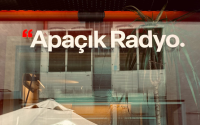Porto Alegre, Brazil
Little surprise that Brazilian President Luiz Inacio Lula da Silva used his address during the first session of the World Social Forum on Thursday morning to emphasize his foreign-policy achievements. Even among an adoring crowd packing a sports stadium in Porto Alegre, he was unlikely to dwell too much on the campaign promises to lift millions of Brazilians out of poverty that swept him into office two years ago but have been impossible to fulfill in such a short time.
If Lula was urging patience for his domestic efforts from his critics to the left--who decry his allocating more to foreign debt payment than to social programs--his boasts of stronger relations with the rest of Latin America and with Africa spoke directly to those in the audience of 11,000 visiting Brazil for the six-day bazaar of workshops, debates, panels, performances and parties that take shape under the slogan "Another world is possible." Now in its fifth edition, the WSF builds its program through an open process: Anyone can sign up to convene a session. There are more than 2,000 this year, among them: "Cooperativism as a Tool of Change," "Citizen Debt Audit," "Experiences of Non-Violent Resistance in Palestine, Israel, Colombia," "Slow Food," and "Art Solidarity."
In the world Lula was imagining (in a speech officially meant to introduce the international initiative "Global Call to Action Against Poverty"), countries of the Southern Hemisphere would organize their own political, cultural and trade agreements and "find our way out together." From what, Lula didn't directly say, but it was obvious enough: out from under the boot of Europe and the United States and their neoliberal spurs, the WTO, IMF and World Bank. (Members of the PSTU, a far-left faction that split from Lula's Workers Party, jeered the president throughout his speech, charging, in essence, that Lula is now off to the World Economic Forum in Davos merely to shine that boot and beg for change.) "The so-called developed world," Lula told the crowd, need not have a domineering--or even any--role in their multilateral agreements.
This decentering of the United States and Europe is a major, if undeclared, achievement of the WSF. There's no way to determine how many of the more than 100,000 participants come from that "so-called developed world," but Portuguese and Spanish dominate the presentations. It's not that anyone regards the United States as irrelevant to the struggles described, debated and developed here--indeed, a prominent image in Wednesday evening's kick-off march was a picture of Bush with the caption "Number 1 Terrorist." But as this motley movement has self-consciously shifted from protesting problems to proposing solutions, it has shoved the United States upstage. Without issuing manifestos, developing a joint list of demands or even trying to create a consensus political program, the WSF serves as a laboratory for new approaches to entrenched problems, favoring bottom-up organizing to party politics, participatory democracy to old-style hierarchies.
Porto Alegre's own famous sixteen-year-old Participatory Budget process, in which city residents organized in neighborhood councils determine how much to spend on such municipal matters as garbage removal or park improvements, remains an inspiration, despite the defeat in October of a mayor from the Workers Party, which initiated the system. Now governed by a mayor from the Popular Socialist Party, this city of 1.3 million people continues to welcome the WSF enthusiastically, providing buildings, some of the $5 million budget and even advertising the forum on its official Tourism web page.
Still, I don't think it's the enthusiastic cab drivers, or the gorgeous weather, that explains why the WSF gives even the most jaded New Yorker a genuine sense of hope. Sure, one could find T-shirts with slogans to object to, or grouse about logistical screw-ups, or offer snide analyses of the impossible contradictions of even attempting to ponder alternatives in the midst of global corporatism. (Wasn't that guy with the anti-McDonald's sign wearing Nikes?) But the palpable energy for change that pervades the atmosphere, the sheer number of practical projects to learn about and from, the smarts, the sense of humor--it all simply overwhelms any impulse to snipe from the sidelines or to wallow in self-righteous powerlessness.
In significant changes from earlier WSF programs, the organizers--various committees with participants from a wide range of countries--have made the sprawling event itself live out its ideals more conscientiously. Once housed on the campus of the local Catholic University, the forum has moved to a more open and public area along the bank of the Guaiba River, hanging art shows in old warehouses, setting up offices and a press center (serving 5,000 journalists in attendance) in an old gas energy factory, and erecting dozens of small tents, stages and stalls for discussions, performances and snacks. A youth camp along the river has a population of 30,000.
This year's WSF has also done away with big plenary sessions and stages for special presenters. For the first time, the organizers did not invite or pay for any featured speakers. So while Lula still has rock-star draw (the stadium crowd sang an ecstatic soccer chant over and over--"olé, olé, olé, olé, Lula, Lula") and Venezuela's Hugo Chávez is due to speak on Sunday, they are listed in the four-volume, newsprint program in the same way as everyone else, with nothing to draw one's attention especially to those events--and with dozens of other events to choose from at the same time.
Last night, at an opening concert in a huge park featuring puppet and fire spectacles and bands from five continents, Gilberto Gil-- Brazil's Minister of Culture and quite likely the world's only national cabinet member to wear dreadlocks--took the stage around 11 pm. For an hour, under a full moon, with just his guitar for accompaniment, he filled the sky with a soulful voice, at once mellow and stirring. The crowd swayed and danced and joined in. Gil sang "Imagine." And here, in Porto Alegre, where all around me promises that another world is possible, my cynicism wafted away on the breeze. "Imagine." I closed my eyes and did.






